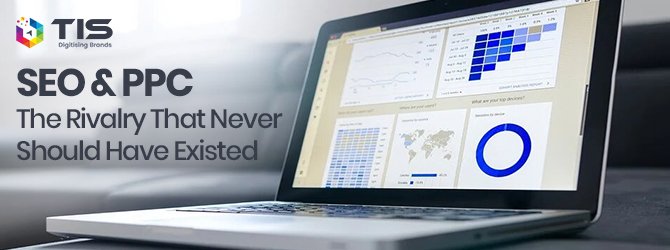Our Offices
USA OFFICE
937, Shore Point Court, # G313,
Alameda - 94501, California, USA.
INDIA OFFICE
C - 81C, Sector - 8,
Noida 201301, UP


In a world where 93% of all online experiences start with a search engine, marketers cannot afford to miss out on the treasure trove of conversion opportunities that search engine marketing provides.
However, like most marketing channels, SEM is an umbrella term that contains different factions.
SEO, the first sub-specification of SEM, is concerned with organic methods of generating traffic. PPC advertising, the second sub-specification of SEM, is SEO’s paid counterpart.
The above remark may seem like an oversimplification of two broad marketing areas, but the focal point of our discussion has little to do with definitions.
We’re here to question the validity of treating SEO and PPC advertising as opposing forces.
Let’s start with two foundational statements:-
Therefore, it is perfectly reasonable to infer that the most effective SEM practices should leverage both, SEO, as well as PPC, in a combined fashion.
But, we don’t expect to throw seemingly far-fetched principles in your face and expect you to play ball. So, let’s dive deeper into the two statements mentioned above.
If you have doubts regarding the efficacy of SEM practices, a change of opinion is only a google search away.
Here’s a sneak peek of what you’ll find:-
We can go on and on, but you get the idea.
Furthermore, given the myriad of analytical tools out there, it isn’t difficult to track the results that your business’ SEM initiatives create.
Even if you use nothing but Google Analytics, you’ll still end up with more insights than you’d know what to do with.
All in all, the individual effectiveness of SEO and PPC strategies has been heavily demonstrated over the years.
The takeaway is that they just work!
Upon careful evaluation, you’ll recognise that the two clauses in this statement share a reciprocal relationship.
The first clause asserts that effective PPC advertising has no malicious bearing on the intended results of SEO practices.
The second clause states that the inverse is also true.
Now, before we tread into the realm of redundancy, let’s talk about some insights from around 400 studies conducted by Google.
Researchers found that even if you completely remove paid ads from the equation, only an abysmally low percentage of lost clicks is recovered in the form of organic traffic.
More precisely, about 89% of incremental clicks lost by eliminating the influence of PPC advertising are lost permanently.
This clearly shows that PPC-generated traffic doesn’t share any major overlaps with SEO-generated traffic.
But, what about the impact that SEO has on PPC advertising?
Consider the situation in which a user searches for “best bedside tables”, and a product from your website pops up among various paid ads.
However, the caveat in this hypothetical example is that we’re assuming your website also occupies one of the top organic positions.
The point that we’re trying to drive home is that when effective SEO practices work in synergy with effective PPC strategies, your website ends up with the maximum SERP coverage.
The decreasing visual differences between both these channels further reinforce the above argument.
The math beyond this point is fairly simple. The more your website shows up in search results, the higher are your chances of conversion.
As Rand Fishkin from moz.com explains, simultaneous exposure to PPC ads and organic results is more powerful than individual exposure to each marketing channel.
The most prominent intersection between SEO and PPC occurs at the time of keyword research.
Since both marketing channels depend heavily on keyword optimisation, insights gathered by working on one channel can be subsequently used to propel growth in the other.
But, before getting into the nitty-gritty of how SEO and PPC can synergistically boost conversions, one thing needs to be made clear.
Working on SEO is like running a marathon whereas investing in PPC advertising is analogous to executing a sprint. The former takes a lot longer than the latter to yield results.
However, SEO-generated results are also more permanent in nature.
So, if you’re starting from scratch, you can leverage the immediate results generated by PPC advertising to discover a few effective keywords.
Consequently, you can use this information to kickstart your SEO initiatives.
Thereafter, when your SEO efforts gain some traction, you can use the keyword data from your success to re-energise your PPC campaigns.
And the cycle goes on …
The Take-Away
Generating organic traffic ceased to be free a long time ago.
Given the cutthroat competition that plagues the top spots on organic results, you cannot hope to drive conversions without the help of a seasoned SEO analyst.
Also, given how long it takes for SEO strategies to kick-off, it would be foolish to discount the power of PPC advertising.
Simply put, irrespective of how you approach SEM, you cannot drive conversions without investing time and resources.
However, by viewing SEO and PPC as birds of the same feather, you:-
So, by all means, let them flock together!
Subscription Implies Consent To Our privacy Policy
7 Reasons Why Internet Marketing Is Important For Your Business
The 10 Advantages of Using WordPress for Developing Business Website